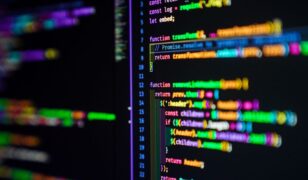Privacy Board releases its 234-page report, with a dozen specific recommendations
 The federal government’s Privacy and Civil Liberties Oversight Board (PCLOB) released on January 23 its 234-page report on the NSA telephone surveillance program under Section 215 of the Patriot Act and the operations of the Foreign Intelligence Surveillance Court. The PCLOB’s report included a dozen recommendations that would, in its view, better safeguard the privacy rights of U.S. citizens.
The federal government’s Privacy and Civil Liberties Oversight Board (PCLOB) released on January 23 its 234-page report on the NSA telephone surveillance program under Section 215 of the Patriot Act and the operations of the Foreign Intelligence Surveillance Court. The PCLOB’s report included a dozen recommendations that would, in its view, better safeguard the privacy rights of U.S. citizens.
“The FISC order authorizes the NSA to collect nearly all call detail records generated by certain telephone companies in the United States, and specifies detailed rules for the use and retention of these records,” explains the PCLOB in its report.
These records contain a great deal of “metadata” about each specific phone call — including the date and time of the call, its duration and the participating telephone numbers — but these records do not include the content of any telephone conversation.
“After collecting these telephone records, the NSA stores them in a centralized database,” says the report. “Initially, NSA analysts are permitted to access the Section 215 calling records only through ‘queries’ of the database. A query is a search for a specific number or other selection term within the database. Before any specific number is used as the search target or ‘seed’ for a query, one of twenty-two designated NSA officials must first determine that there is a reasonable, articulable suspicion (“RAS”) that the number is associated with terrorism.”
The PCLOB cites four reasons why, in its view, the phone records program does not comply with Section 215. But, above and beyond its legalistic arguments, the PCLOB reached the conclusion that the Section 215 phone program simply isn’t effective.
“Based on the information provided to the Board, including classified briefings and documentation, we have not identified a single instance involving a threat to the United States in which the program made a concrete difference in the outcome of a counterterrorism investigation,” stated the report. “Moreover, we are aware of no instance in which the program directly contributed to the discovery of a previously unknown terrorist plot or the disruption of a terrorist attack. And we believe that in only one instance over the past seven years has the program arguably contributed to the identification of an unknown terrorism suspect.”
Even though the program has not proven to be very effective, the PCLOG reached the conclusion that its mere existence can greatly jeopardize the privacy rights of millions of citizens.
“When the government collects all of a person’s telephone records, storing them for five years in a government database that is subject to high-speed digital searching and analysis, the privacy implications go far beyond what can be revealed by the metadata of a single telephone call,” the report declares.
The PCLOB offered a dozen recommendations, including (1) The government should end its Section 215 bulk telephone records program, (2) The government should immediately implement additional privacy safeguards in operating the Section 215 bulk collection program, and (3) Congress should enact legislation enabling the FISC to hear independent views, in addition to the government’s views, on novel and significant applications and in other matters in which a FISC judge determines that consideration of the issues would merit such additional views.
Prior to the public reklease of the PCLOB’s report, President Obama traveled to the Department of Justice to deliver a major speech on his views of the proper balance between safeguarding national security and protecting privacy and civil liberties.
The president’s speech and accompanying presidential directive — along with the recently-released PCLOB report as well as the upcoming debate on Capitol Hill – will all contribute to the ongoing national dialogue on this hugely controversial topic.








